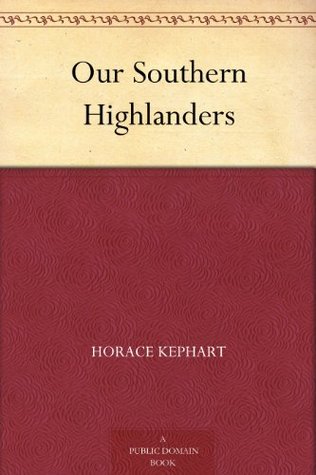Kindle Notes & Highlights
moon-calf
Our highlander often speaks in Elizabethan or Chaucerian or even pre-Chaucerian terms. His pronoun hit antedates English itself, being the Anglo-Saxon neuter of he. Ey God, a favorite expletive, is the original of egad, and goes back of Chaucer. Ax for ask and kag for keg were the primitive and legitimate forms, which we trace as far as the time of
Layamon.
peart,
all these everyday expressions of the backwoods were contemporary with the Canterbury Tales.
“There’s been a fray on the river—I don’t know how the fraction begun, but Os feathered into Dan and Phil, feedin’ them lead.” He meant fray in its original sense of deadly combat, as was fitting where two men were killed. Fraction for rupture is an archaic word, rare in literature, though we find it in Troilus and Cressida. “Feathered into them!” Where else can we hear to-day a phrase that passed out of standard English when “villainous saltpetre” supplanted the long-bow? It means to bury ...
This highlight has been truncated due to consecutive passage length restrictions.
There is something intrinsically, stubbornly English in the nature of the mountaineer: he will assimilate nothing foreign.
Many other old-fashioned terms are preserved in Appalachia that sound delightfully quaint to strangers who never met them outside of books.
We have in the mountains many home-born words to fit the circumstances of backwoods life. When maize has passed from the soft and milky stage of roasting-ears, but is not yet hard enough for grinding, the ears are grated into a soft meal and baked into delectable pones called gritted-bread.
In some places to-day we still find the ancient
q...
This highlight has been truncated due to consecutive passage length restrictions.
jocu...
This highlight has been truncated due to consecutive passage length restrictions.
called an armstrong...
This highlight has been truncated due to consecutive passage length restrictions.
scrapple,
Those who have lived literally close to wild Nature know her for a tyrant, void of pity and of mercy, from whom nothing can be wrung without toil and the risk of death.
To all pioneer men—to their women and children, too—life has been one long, hard, cruel war against elemental powers.
The first lesson of pioneering was self-reliance. “Provide with thine own arm,” said the Wilderness, “against frost and famine and skulking foes,
We have seen that the Appalachian region was peculiar in this: that good bottom lands were few and far between.
servility
headship
granges
The mountaineers must awake to a consciousness of themselves as a people. For although throughout the highlands of Kentucky, Tennessee and the Carolinas our nature is one, our hopes, our loves, our daily life the same, we are yet a people asleep, a race without knowledge of its own existence.
patrimonies,
consanguinity,
puerility,
dilatory
So, in an imperfectly organized society, it is good to have blood-ties that are faithful unto death. And none knows it better than he who has missed it—he who has lived strange and alone in some wild, lawless region where everyone else had a clan to back him.
punctilious
maquis,
There is a glamour about bold and lawless adventure that fascinates mature men and women who have never outgrown youthful habits of mind.
punctilios.
Governor Bradley sent State troops into Clay County, and Tom Baker surrendered to them. Baker was tried in the Knox Circuit Court, on a change of venue, and was sentenced to the penitentiary for life. On appeal his attorneys secured a reversal of the verdict, and Baker was released on bail.
vitiated
tumbril,
The Southern Appalachian Mountains happen to be parceled out among eight different States, and for that reason they are seldom considered as a geographical unit. In the same way their inhabitants are thought of as Kentucky mountaineers or Carolina mountaineers, and so on, but not often as a body of Appalachian mountaineers. And yet these inhabitants are as distinct an ethnographic group as the mountains themselves are a geographic group.
Before the Civil War they were seldom heard of in the outside world. Vaguely it was understood that the Appalachian highlands were occupied by a peculiar people called “mountain whites.” This odd name was given them not to distinguish them from mountain negroes, for there were, practically, no mountain negroes; but to indicate their similarity, in social condition and economic status, to the “poor whites” of the southern lowlands. It was assumed, on no historical basis whatever, that the highlanders came from the more venturesome or desperate element of the “poor whites,” and differed from
...more
Since this theory still prevails throughout the South, and is accepted generally elsewhere on its face value, it deserves just enough consideration to refute it.
The unfortunate class known as poor whites in the South is descended mainly from the convicts and indentured servants with which England supplied labor to th...
This highlight has been truncated due to consecutive passage length restrictions.
The Cavaliers who founded and dominated southern society came from the conservative, the feudal element of England. Their character and training were essentially aristocratic and military. They were not town-dwellers, but masters of plantations. Their chief crop and article of export was toba...
This highlight has been truncated due to consecutive passage length restrictions.
yeomanry
desultory
cutaneous


